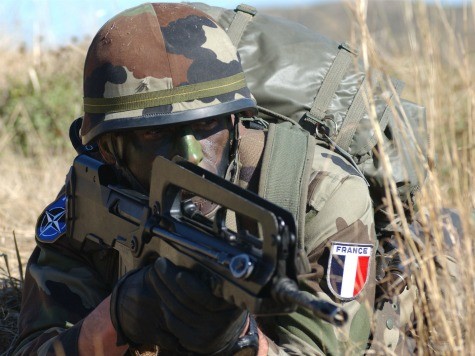
This morning’s key headlines from GenerationalDynamics.com:
- France’s president Hollande announces military action in Mali
- United States remains ‘deeply concerned’ about Mali situation
- U.S. will withdraw from Afghanistan earlier than expected
- Britain faces decision whether to remain in the European Union
France’s president Hollande announces military action in Mali
The President of Mali went on national TV on Friday and declared anational state of emergency, days after Ansar Dine Islamists tookcontrol of the central town of Konna, as we reported yesterday. At the same time, French and Maliansoldiers, supported by French air strikes, launched a military attackon the Islamists, recapturing the town. France decided to takeunilateral action after becoming impatient with the U.N. SecurityCouncil for dithering for months, allowing the Islamists to gaincontrol of larger and larger areas of Mali.
Although France’s action was unilateral, France is insisting that itsactions are legal because they were responding to a request from thegovernment of Mali. France’s president François Hollande also promisedthat France’s military action would fall within the mandate ofprevious U.N. Security Council resolutions, though it’s hard to seehow that could be true, since previous resolutions only authorizedtroops from neighboring African streets.
The original UNSC plan was that Western forces would train the Malianarmy, and restore democracy in the Malian government in Bamako, aftera coup overthrew the elected government a year ago. After that, thegovernment would negotiate with the Islamists who control northernMali. But it’s now become clear that the Islamists have a shot attaking over the entire country before that plan could be put intoeffect. So the new plan is that the French army and air force willpush back the Islamists, and then they can return to the previousplan. Reuters and CS Monitor
United States remains ‘deeply concerned’ about Mali situation
The U.S. State Department is refusing to clarify whether the U.S.stands ready to send American forces into Mali:
Obviously we remain deeply concerned by the recentevents in Mali. We echo the international community’s condemnationof these recent aggressive acts.
I’m not going to get into hypotheticals about what France mightneed or requests that haven’t yet come to us.
But US military officers are closely monitoring the “evolving”situation. AFP
U.S. will withdraw from Afghanistan earlier than expected
President Barack Obama announced on Friday, at a joint pressconference in Washington with Afghanistan president Hamid Karzai, thatthe U.S. is accelerating its withdrawal from Afghanistan, and thatAmerican troops will be moving to a supporting role within the nextfew months, and complete the withdrawal in 2014. The Administrationplans to leave a small American force behind after the withdrawal, butis threatening to leave no troops behind unless the Afghan governmentgrants American forces immunity from prosecution in Afghan courts.
Karzai said that he plans to negotiate a peace process with theTaliban, so that the country will again become a tourist attraction.However, some analysts believe that the rapid withdrawal of Americanforces will leave allow Taliban insurgents to regain the territorythat they lost.
According to Said Jawad, the former Afghan ambassadorto the U.S.: “Unfortunately we already see actually in some partsof Afghanistan continued presence of Taliban and relativelysustained activities of al-Qaeda in eastern Afghanistanalready.”
This highlights the flaw in the “Afghanistanization” of the war, thatI’ve discussed many times. (For complete analysis, see “2-Sep-12 World View — U.S. decision on Haqqani Network will affect Pakistan relations”)
Afghanistan is on the cusp, just entering a generational Awakeningera, so a “peace process” would be a plausible plan. The problem isthat the Taliban are Islamist Pashtuns, and the Pashtuns are spreadacross southern Afghanistan tinto Pakistan’s northwest. Pakistan isin a generational Crisis era, and the al-Qaeda linked Tehrik-e-TalibanPakistan (TTP), the Pakistan branch of the Taliban, will never agreeto a peace treaty. As Jawan points out, terrorist activities areincreasing in eastern Afghanistan, on the border with Pakistan, andthese activities are expected to increase, particularly as Americantroops pull back. VOA and AAP
Britain faces decision whether to remain in the European Union
Britain has never been comfortable in the 27-member European Union,and in particular has no intention of joining the 17-member eurozone,choosing instead to retain its own currency, the pound sterling.Although prime minister David Cameron has said that Britain shouldremain part of the EU, there is a growing wing of his ConservativeParty that would prefer Britain to leave, and is demanding anationwide referendum on the issue. Cameron will soon be giving amajor speech to clarify his own position on the EU and the referendum,but so far he’s taken the position that he wants Britain to remain inthe EU, but only provided that the EU change several policies,including two major ones:
- EU immigration controls need to be changed to limit the possibility for “people to come and live in Britain and claim benefits.
- Get rid of the EU’s Working Time Directive, which Britain has bitterly opposed since it was first adopted in the 1980s. It forbids any workweek to be longer than 48 hours, and requires annual vacations at least 4 weeks long.
However, Cameron fears that if Britain leaves the EU, then Britainwould suffer economically because of damaged business relationshipswith Europe. Spiegel
Permanent web link to this article
Receive daily World View columns by e-mail

COMMENTS
Please let us know if you're having issues with commenting.